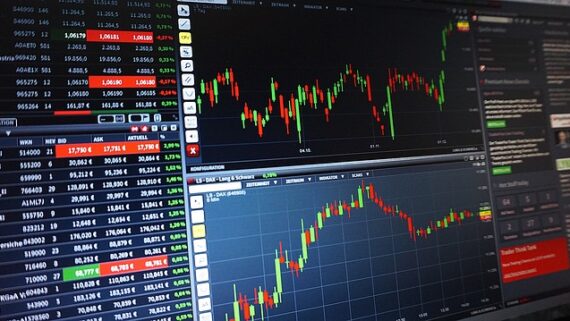A CERTAIN PART OF THE TRADE IN SHARES IN THE UNITED STATES IS OVER THE COUNTER TRADE
SEC (within this framework shares not are not registered with one of the supervised stock exchanges by the US Securities and Exchange Commission).
NYSE, AMEX or NASDAQ are traded on one of the electronic systems for online trade, which supply price citations for these shares by means of market makers.
The SEC has authorized the PCAOB to determine procedures that shall be imposed on auditing accountants.
The two over the counter trading platforms are Over the Counter Bulletin Board (OTCBB) within the framework of which all the companies are obligated to full reporting to the US Securities and Exchange Commission – SEC and the OTC Link, operated by the OTC Markets Group and is divided into three levels:
OTCOX is the highest quality between the three levels. All the companies the shares of which have been received for trade on it, are obligated to full reports to SEC, and furthermore are required to comply with a series of quality criteria. The second level is OTCQB, which is similar to OTCBB and also at this level all the companies in practice are obligated to transfer full financial reports to SEC, The third level is OTC Pink, the lowest level, within the framework of which the companies are not obligated in practice to report to SEC, although some of these companies actually do so in any event.
Many American institutional bodies are precluded from purchase of shares traded on OTC – which harms their level of negotiability, and furthermore testifies as to the level of risk entailed in some of these shares. Many shares are traded in practice on OTC at lower prices, such as: a few cents, and in many cases even fractions of cents and in practice constitutes fertile ground for manipulations.
Shares of thousands of different companies and of various qualities are in practice traded on OTC. A large number of these companies are small companies that suffer from low trade turnovers however shares of huge companies are traded alongside them with very large trade turnovers such as; Nestle or Heineken which prefer the OTC trading platform.
Foreign companies, which are not American, register their shares for trade on OTC when they wish to expand their investor base and have greater exposure in the American market. On the other hand registration on one of the large stock exchanges in the United States obligates those same companies to comply with tough criteria which in practice have been become stricter since the legislation of the Sarbanes Oxley Act of 2002, or in brief SOX in the United States following accounting scandals and manipulations at the beginning of the 2000s, such as huge organizations like Enron Corporation and WorldCom.
We invite you to contact us
One of our employees would love to be at your service and answer all of your questions









